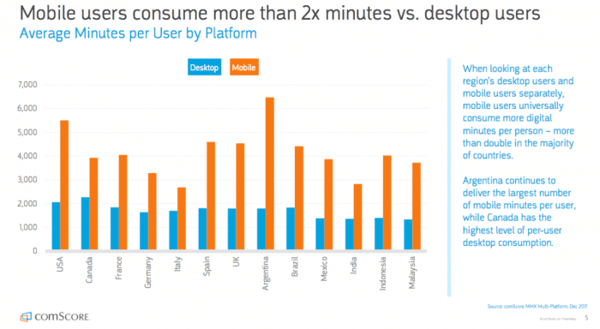Uber. Airbnb. Amazon. Facebook. Netflix.
These are businesses that weren't the kingpins they are today a decade ago. Today, they are the core services that make everyday life possible.
These businesses have become so popular that they have created their own business models that are being replicated across the globe. On-demand services, aggregators, online marketplaces to name a few. Do you know the superpower that is propelling all these new-age businesses into popularity?
Mobile applications in digital transformation
Mobile apps it is. Thanks to mobile apps, the users of today have the superpower to summon any service to their doorsteps. It is not just a convenience that mobile apps are bringing to our world. They are also catalysts to a bigger picture — what tech enthusiasts call digital transformation.
What is digital transformation?
There is no authoritative definition on digital transformation. It can be best described as the profound collection of technologies that move analog processes to the digital medium.
Now, digital transformation not only helps transform your business but also delivers on other business benefits. It helps retain existing customers by facilitating better services as well as creates new avenues for monetization. The fact that all these benefits can be achieved at economical costs increases the value of digital transformation.
Be informed that launching a mobile application for one specific business function is not digital transformation. A complete overhaul of business processes that are powered by digital technologies. Mobile apps happen to be one among them. In a way, they are the centrepieces to digital transformation.
The pivotal role of mobile apps in digital transformation
Digital transformation aims to migrate analog business process to digital medium. It touches across several functions like business operations, utility services, communication and even the latest warcry of all businesses — customer experience.
Also, mobile has long since surpassed desktop as the primary way to access the internet. Be it in the US or developing economies like Argentina, mobile users consume more than 2x minutes compared to desktop users. (Smart Insights)

Source: Smart Insights
That establishes the fact that mobile apps are truly the propelling force behind digital transformation. How exactly do mobile apps influence digital transformation?
They act as the:
- Harbinger of the age of mobile workers
- Provider of on-demand services
- Facilitator of real-time communication
- Orchestrator of customer experiences
Harbinger of the age of mobile workers
Virtual workplaces would have been frowned upon in the past. But today, mobile apps and web services have turned ‘work from home’ and ‘Bring Your Own Device’ into a culture that businesses across all verticals are embracing with open arms. The global workforce is also becoming increasingly mobile breaking away from the conventional model of desk-based workplaces.
Studies by Strategy Analytics also hint that global mobile workforce is set to touch 1.87 billion in 2022, accounting for 42.5% of the global workforce. Even today, a rage of mobile apps for project management, enterprise management systems and collaboration makes it possible for remote workers to connect with their colleagues from any corner of the world. Now a seamless world where employees can collaborate with each other without any limitations is what digital transformation is all about.
Providers of on-demand services
Mobile apps accelerate the pace of information exchange and business transactions between businesses and customers. For example, in the olden days, a passenger would have to painstakingly explain the route to his destination to a New York cabbie. Today, UBER’s built-in GPS navigation system makes it easy for passengers and cab drivers to set and exchange accurate destinations. There is minimal confusion involved.
In this process of information exchange, mobile app users create a massive amount of data that will benefit marketers. The data collected from location-based services can be used by marketers to send targeted promotional content at the most opportune time to drive more sales. In technical parlance, this is referred to as geotargeting. Geo Targeting has other applications as well. For instance, it is often used in factories and assembly lines to monitor the performance of heavy-duty manufacturing equipment.
Facilitator of real-time communication
Landlines are dying. VoIP phone systems are booming. Along with that, mobile apps are also facilitating real-time communication. Real-time communication apps like WhatsApp, Apple Messages, Google Chat, Slack, Facebook Messenger, etc. are considered to be must-have apps by all users.
These mobile apps have capabilities that go beyond the traditional messaging systems. They can embed audio messages, video conferences, file attachments, location sharing and much more which makes them perfect for the mobile workforce.
Orchestrator of customer experiences
In the early days, customer experiences were largely tied to physical experiences. Faster delivery at a restaurant, a hassle-free movie ticket, or a handwritten thank you note, were all considered to be good examples of customer experiences. Mobile apps have rewritten the customer experience game.
Today customer experiences refers to the usability and utility of mobile apps. Right from how the interface responds to the way it was designed, mobile apps are the new orchestrator of customer experiences. In digital transformation, customer experience plays a vital role in increasing customer lifetime value and also in keeping churn rates at lower levels.
Conclusion
Digital transformation has touched base with almost every industry in existence today. From the delicate healthcare to heavy-duty manufacturing it is transforming the way day-to-day operations are carried out.
Mobile apps have a vital role to play in digital transformation. The act as the centrepieces that bring users and businesses together. Their capability to enable a mobile workforce, real-time communication and digital customer experiences make them inevitable for digital transformation.
Intrigued? It's time to find the top-rated mobile app development services for your needs, only on G2.

 by Dhaval Sarvaiya
by Dhaval Sarvaiya
 by Andrej Kovačević
by Andrej Kovačević
 by Bridget Poetker
by Bridget Poetker